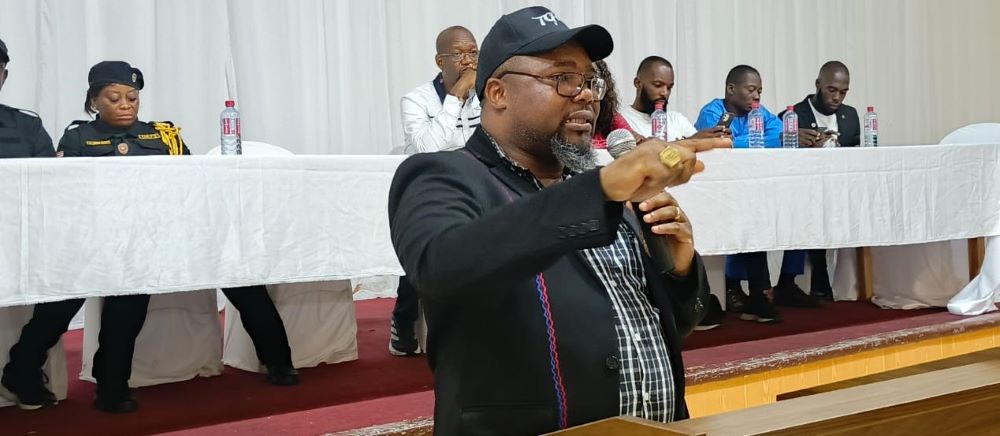In a recent statement, Representative Thomas Goshua, the Chairman of the House of Representatives Committee on Drugs in Liberia, expressed urgent concerns over the escalating narcotic drug abuse among the nation’s youth, characterizing it as a “war on the future” and a “ticking time bomb.” During an anti-drug campaign held in Grand Bassa County, Goshua emphasized that almost every household in Liberia is affected by drugs in some manner, suggesting that the perilous reach of narcotics extends even into the homes of politicians and public figures. His comments underscore the critical importance of addressing this issue swiftly, reiterating that without immediate action, young Liberians face grave risks to their health and future.
Despite ongoing efforts to combat this crisis, the prevalence of substance abuse continues to rise, as noted by Rep. Goshua. He highlighted the alarming statistic from the United Nations Population Fund, which states that approximately 20% of Liberia’s population is engaged with drugs. This vast percentage raises concerns about the societal and economic implications of drug misuses, such as increased crime rates, diminished workforce productivity, and a potential surge in health-related issues. Goshua’s warning reflects not only the urgency of the current situation but also the potential long-term impacts of inaction, stating pointedly, “there’s a war on [the] future.”
Mayor Robert S. Bestman II of Paynesville City joined Goshua in underscoring the necessity for more robust anti-drug campaigns aimed at students, who are particularly vulnerable to the allure of narcotics. Bestman called for a collective effort from the community to intensify awareness initiatives and engage in dialogues that discourage drug involvement among the youth. He recognized that drug abuse is a community issue that requires a united response from parents, educators, and local government to effectively mitigate its rapid escalation.
The event also featured Special Agent Grace Mulbah, Chief of Prevention and Awareness at the Liberia Drugs Enforcement Agency (LDEA), who corroborated Goshua’s concerns regarding the alarming rates of drug use among young people. She advocated for enhanced investments in prevention campaigns and underscored the urgent need for increased budgetary support for the LDEA, which plays a pivotal role in combating drug-related offenses. Mulbah’s observations align with broader sentiments about the inadequacy of current resources to tackle the pressing drug issue and highlight the necessity of safeguarding the youth of Liberia from the clutches of addiction.
The rising incidence of drug abuse among Liberian youth not only poses immediate health risks but also threatens the nation’s social fabric and economic progress. Consequently, Rep. Goshua has called for strategic plans that include increased funding for drug enforcement agencies and awareness programs aimed at educating young people about the dangers of drug use. He insists on the dire need for a comprehensive approach that encompasses prevention, treatment, and enforcement mechanisms to address the situation effectively and to lay a strong foundation for future generations.
Overall, the collective voices of Rep. Goshua, Mayor Bestman, and LDEA representatives reflect a growing recognition of the drug crisis as a national emergency requiring urgent, collaborative efforts. The continuing dialogue around drug abuse underscores the realization that each stakeholder—government officials, law enforcement agencies, community leaders, and families—plays a crucial role in reversing the trend of addiction and safeguarding the future of Liberia’s youth. The theme of the anti-drug campaign, “Books, Not Drugs,” serves as a poignant reminder of the potential for education to outweigh the allure of narcotics, fostering a brighter, more resilient future for the young people of Liberia.


